Have you ever found yourself yearning to break free from your home, head out into nature, and enjoy a few hours to yourself in a quiet and peaceful atmosphere? Might you enjoy floating peacefully on a boat in the water, just you, your rod, and the occasional bite to keep your mind occupied and fill you with the thrill of having made a catch?
Well, fly fishing might well be for you! If you don't know too much about fly fishing, don't worry. We're here to guide you through the basics and help open your eyes to the multitude of reasons that fly fishing is so addictive!

So, why is fly fishing addictive?
Well, the simple answer is that it can provide you with a truly captivating experience. It encourages the release of positive endorphins, which make you feel positive emotions. We all crave to be happy and content, and fly fishing provides us with a break from the troubles and concerns of day to day life where we can experience these rewarding and comforting feelings. What's not to love about that?
What Is Fly Fishing?
Before we get started on fly fishing's addictive qualities, let's take a moment to get to grips with what fly fishing is. If you're new to the activity, chances are you know what fishing is but are wondering how fly fishing differs. Well, here are some of the basics. Put simply, fly fishing is a form of fishing that revolves around luring fish in with an artificial lure called a "Fly."
This will generally mimic the appearance of an insect or other kind of prey lying on top of the water. You are attempting to outsmart and trick the fish into swallowing your hook, thinking that it's food.

They are often made from feathers (usually taken from ducks, pheasants, or other birds), fur or hair (often taken from beavers, muskrats, deer, elk or moose), synthetic and artificially created materials, glass or brass beads, tinsels, wires or other ribbing materials. You can fly fish for a number of different fish, but trout fish tend to be the most common and popular type of fish to target.

Differences Between Fly Fishing and Other Forms of Fishing
Traditional fishing, which uses spin casting with a spinning reel, can be a great introduction to fishing. But if you're looking for a type of fishing that traverses into an art, fly fishing will prove much more exciting and rewarding for you. When you fly fish, you'll find that:
- Your rod is more lightweight than a traditional rod
- Your rod is much longer than a traditional rod
- Your bait will be much more lightweight and imitates food, rather than being food
- Your line is much heavier, allowing you to cast it well without heavy weight or lure on the hook
- You’re like to fish in moving water rather than still water
- You’ll exert a bit more energy in luring and catching a fish
Why Is Fly Fishing Addictive?
There are so many different facets of fly fishing that there’s bound to be something that appeals to pretty much anyone out there. Whether you’re a complete novice and have never tried fly fishing before, or you’re a seasoned pro who’s been engaging with fly fishing for years, you’re likely to get hooked in just the same way. So, let’s take a moment to look at some more of the specifics of fly fishing that could lure you in!
Sheer Peace and Tranquility
Modern life is pretty hectic. The majority of us are used to chaotic routines where we feel pushed and rushed around the clock. We get up earlier than we probably want to. We rush to get ready, head out of the door, and face the morning commute. We get stuck in traffic or are crammed into carriages on public transport. We go to work. We're up to our ears in projects and deadlines.
We head home, facing the dreaded commute once again. Once we're in, we need to make some food. We want to fit in our recommended daily exercise. There's probably a TV show we want to keep up to date with. Before you know it, it's time for bed again. And repeat.
When you lay it out like that, it's not all too surprising that a break away from routine and chaos on your weekends or days off sounds pretty appealing. When you go fly fishing, you let go of all of your troubles, deadlines, concerns, arguments - whatever has been bothering you.

Instead, it's just you, nature, your boat, your fly fishing rod, and the occasional fish. This gives you time for some peace, relaxation, and quiet. Many people who try fly fishing out describe it as "therapeutic." You can use this time to yourself as and how you wish. You can float quietly, letting all thoughts drift out of your mind and focusing on absolutely nothing.
Alternatively, you can sit peacefully on a bank and use it as an opportunity to come up with an answer to a puzzle or challenge you need to overcome. You can use it to plan for the future - maybe you're considering a career change, might want to move home, or are planning on a significant life change like a proposal or children. Whatever's on your mind, fly fishing provides you with a few hours to yourself to focus on it.

Spending Time Outdoors
Few of us spend a lot of time in nature. We're cooped up in offices. We're cooped up in our houses. Even in our free time, we often end up cooped up in cinemas, bars, clubs, or pubs. When's the last time you were out in the open? Not outdoors as in "walking from the train station to a meeting place," but truly out in the open?
Chances are it's been a while, or when you've ended up out in nature, you didn't intend to end up there. But being out in nature is good for you and your wellbeing. Several studies have been conducted into this area, and there's a consensus that spending time outdoors really is favorable. Being in nature can reduce feelings of fear, anxiety, and stress.
You'll produce fewer stress hormones and can benefit from lowered blood pressure, reduced heart rate, and less muscle tension. It's not all too surprising people find themselves wanting to grab their fly fishing gear and head back time and time again. Getting some fresh air is like having a real retreat!

Visiting New Places
Of course, you're likely to have a favorite fishing spot that you head to as your regular. It'll be local and easy and convenient to get to. It won't take all too long until you know the space like the back of your hand. But fly fishing also allows you to visit new places.
If you're a bit of an adventurer, fishing trips are a great excuse to research new lakes in new towns, cities, or even states and to head on a little road trip to try them out yourself. Perhaps you'll just head away for a day trip. Maybe you'll go on a long weekend break.
You might even head overseas for a full-blown fly fishing holiday. Whichever option you go for, you can do a fair amount of research to find the perfect place for you to fly fish. Fly fishing really can open you up to new landscapes, scenery, and beautiful spots that you might never have discovered otherwise. You just need to plan, pack up your equipment, and fly fishing hats and get to it!

Learning
Many of us like to learn. Gaining new knowledge is rewarding in and of itself. Getting involved in fly fishing can open your horizons to a whole world of education. Sure, you can fly fish with minimal knowledge, floating about a lake and pulling in whatever happens to bite.
But if you get really into it, it could quickly become your specialist subject. Firstly, you'll have to find out more about fish. You'll need to learn what different types of fish you can fly fish for. You can find out what their average size is (helping you to determine whether your catches are small, average, or notable).
You can find out how they think, how they behave, what food they prefer, how to lure them in, which fly fishing flies will best attract their attention and interest. Then you'll have to learn how to fly fish. This will involve all sorts of knowledge, such as the best time to fish, what fly fishing wear, and fly fishing gear is best for purpose. You'll find out how to load a fly and bait onto your hook.
You'll learn how to cast a line. You'll learn how to reel a fish in and safely release it. Fly fishing is a constant learning curve, where you can continuously benefit from new information.
Picking Up New Skills
Once you know how fly fishing works, you'll have to practice. A time will come where you'll have to put your knowledge to the test and put the skills into action. You'll have to tie fly fishing knots, catch fish, bring them in, release them, and repeat.
The longer you go fly fishing, the sooner you'll pick up these new skills and improve on them. Before you know it, you'll be able to carry out the basics without even really having to think much about them. This is rewarding in and of itself! It's always fun to know you have a skill set and to be able to show it off to others!
An Enjoyable Workout
Of course, fly fishing is pretty difficult physical work when it comes down to it. Now, it's recommended that the average adult should get one hundred and fifty minutes of moderate aerobic exercise per week or seventy-five minutes of vigorous aerobic exercise a week.
Those of us who keep up with these recommendations often do so by engaging with forms of exercise we don't particularly enjoy. Perhaps we head to the local gym and spend some time running on the treadmill. Maybe we lift some weights. We might go on the rowing machine, cycle a little, or use other equipment.
Very few people find much genuine fun in this - they merely go along with it to meet their fitness goals. Why not follow a form of exercise that's much more fulfilling and less mind-numbing? When you fly fish, you get a fair bit of a workout. If you have a rowboat, you'll have to row yourself out into the lake.
If you get a catch, when you pull the fish in, you'll have to use your strength against active resistance. You can also add extra workouts into your fishing trip. Perhaps you could park a distance from the lake or fishing spot itself to encourage you to walk a little further while carrying your gear.

The Social Element
As with any other hobby or interest, there's inevitably the option of a social element that comes with fly fishing. Now, if you want time to yourself - that’s fine. Fly fishing can be carried out in an entirely solitary manner.
But if you do want to socialize with others who share this interest, or you do want to add a social element to your fly fishing, this is easily achievable. There's a huge fly fishing community out there - on a local, national and global scale - so it's easy to meet others and get talking on the subject.
If you have a local spot, chances are you'll see other regulars fly fishing nearby too. You can exchange pleasantries and may even want to meet down at a local pub or cafe and get chatting when you decide to take breaks or when you've packed up and are done for the day.
There's a real sense of camaraderie between fly fishers. You can even get your friends into it and go fly fishing together, meeting up in your free time to enjoy the shared experience.

The Thrill
Sure, we've highlighted that fly fishing can be calming and relaxing. But at the other end of the spectrum, if you're looking for thrill and a little adrenaline, it can tick your boxes too! When you've been lounging around for an extended period and suddenly notice a tug at your line, your heart might skip a beat.
There's a real excitement that lies in the chase between catching the fish and whether or not it gets away. Sure, it's not going to set you on edge in the same way as an extreme sport.
When you skydive, bungee jump, or engage in another outlandish activity, there's a genuine risk to life, and this is reflected in your body's reactions. But fly fishing is a simple and straightforward way to get a quick boost of energy and real excitement! Once you've succeeded and caught a fish, you'll want to repeat the experience again and again.

Collecting Equipment
People often like to collect things. When we develop interests, many of us want to invest in the best equipment and gear that will help us to achieve our goals best. This goes for all sorts of items related to fly fishing. Many fly fishers find plenty of things to invest their money into for the sake of their fishing. This could be a particular fly fishing fly. It could be a particularly impressive pair of fly fishing waders. It could be a branded fly fishing hat. It could be a particular rod. It could be a specific type of line. People build up their collections of these items over time, and it really can feel rewarding, bringing them back to their favorite fly shop time and time again.
Beating Your Personal Best
Once you've caught a few fish, you'll become familiar with what's a standard catch and what's an impressive catch. You're going to want to beat whatever your best is. This is instinctive. We all want to achieve, and we all have a sense of competition inside us. We're going to want to improve in fly fishing, and we want our improved skills to be reflected in better catches. It feels so great to head home after a day of fly fishing and being able to show off a particularly impressive catch that you might have made. Keep a record of your catches in a small notebook. You may even want to take pictures to capture your memories and achievements.

A Sense of Competition
Of course, it's not necessarily just your personal best that you might want to beat. You might want to challenge others out there too. In any hobby or sport, there's bound to be records that people have previously set. It can be exhilarating and rewarding to beat these targets. This could be on a small scale, for example, aiming to catch the biggest fish that has been found by anyone fishing on your local lake. At the other end of the spectrum, you could go all out and attempt to catch the biggest trout recorded when it comes to trout fishing in America.
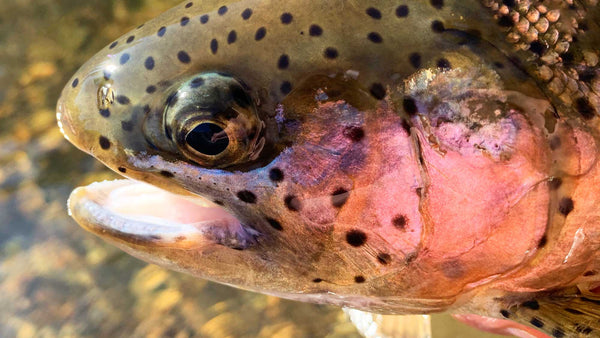 For Something to Do
For Something to Do
The number of people who don't have any form of a hobby is astounding. So many of us simply live our usual routines and spend all of our free time engaging with activities we're not that interested in and completely out of sheer habit. Perhaps we just laze about on the sofa and watch television without paying all that much attention.
So many of us just sit in the house with nothing to do, allowing ourselves to be consumed by boredom. If you're at a loose end at how to spend your time, a new hobby can prove to be life-changing. It keeps you occupied. It staves off feelings of boredom. It gives you something to look forward to. Even if you're tired of work or have had a dull evening, a planned day of fly fishing coming up can put something positive on your horizons.

For Something to Talk About
In a similar vein, many of us find ourselves without anything interesting to talk about to others. We don't have much to contribute to conversations, and this can make us feel self-conscious. When you have a hobby like fly fishing, topics for discussion can become endless! You can speak about your recent trips. You can show off catches.
You can discuss new fly fishing equipment releases or compare brands and products with others who fly fish. You can keep up to date with local, national, and international records. There really is no end to fly fishing topics that you can go on about too much - it's an inexhaustible supply, as long as you have others who are into the topic also. The good news?
There are hundreds of thousands of fly fishers out there who will be more than happy to talk all day and night about their favorite pastime. You could even consider setting up your blog based around fly fishing, sharing your thoughts with a potentially global audience, and getting some conversation started around the subject with different fly fishers from around the world.

It Gives You Something to Follow
Of course, there are fly fishing professionals out there. People who are so good at fly fishing that they have managed to make a career from it. Their efforts are documented on television shows, in magazines, in papers, on social media, and various other sources. You can track the world of professional fly fishing to keep on top of all of the fly fishing news easily. You just need to know the right places to look!
Getting Started
If all of this sounds good to you, it might be time for you to start taking your first steps towards fly fishing yourself.
Getting Your Equipment
The first step is to visit your local fly shop and get all of the equipment you need. A beginners' kit needn't cost too much. You can always upgrade if you want to continue fly fishing and want to benefit from better equipment down the line. Generally speaking, most fly fishing equipment can retain its value pretty well, so you can also sell your starter kit on to a new beginner when you do decide to upgrade. Make sure you have:
- A fly rod and reel
- Waders
- Boots
- A selection of quality flies
- A hat
- Sunglasses
- Outdoor clothes
- Waterproofs
- Sunscreen

Practicing
Next, it's time to start honing in your skills. There are some skills that you can practice at home. Why not try tying knots and adding lures to hooks while you're home. This can give you plenty of practice before you even arrive to fish for the first time. Next, you need to learn how to cast. Casting is an essential skill, and you can't really practice this at home.
Instead, you need to be out in the water to get a feel for it. When it comes down to it, casting is an art form, so you're extremely unlikely to get it the right first time around. Instead, watch other people and learn from them. This could be watching other fly fishers at your fishing spot or watching videos of people fly fishing online.
Persisting
From this point on, everything is going to fall down to practice and experience. The more you get out, and the more often you fish, the better you will gradually become. Perfection takes patience and persistence. So, don't feel downhearted if you don't even catch a fish for a while. You'll eventually get there!

Sure, fly fishing may be a relatively new subject for you, and you may never have tried it before. But hopefully, you can now see that it could prove to be your new favorite pastime if you just give it a go! As soon as you get a taste for fly fishing, you'll be unstoppable. It is such an enjoyable, fulfilling, and rewarding activity that it's not all too surprising that many people describe it as addictive!
Hopefully, the above information has helped to answer any questions you may have had about exactly why fly fishing is so addictive! It's pretty straightforward when it comes down to it. Fly fishing is fun. It gives you something to do. It gives you something to talk about. On top of all of this, you gain new skills, tick off some of your recommended exercises, expand your knowledge and get to spend a bit of time away from your usual routine and out in the open air. What's not to love about it?
So, invest in the basics, learn some of the necessary skills, and get going. You'll be a fly fishing pro before you even know it, and we can guarantee you won't be looking back anytime soon!
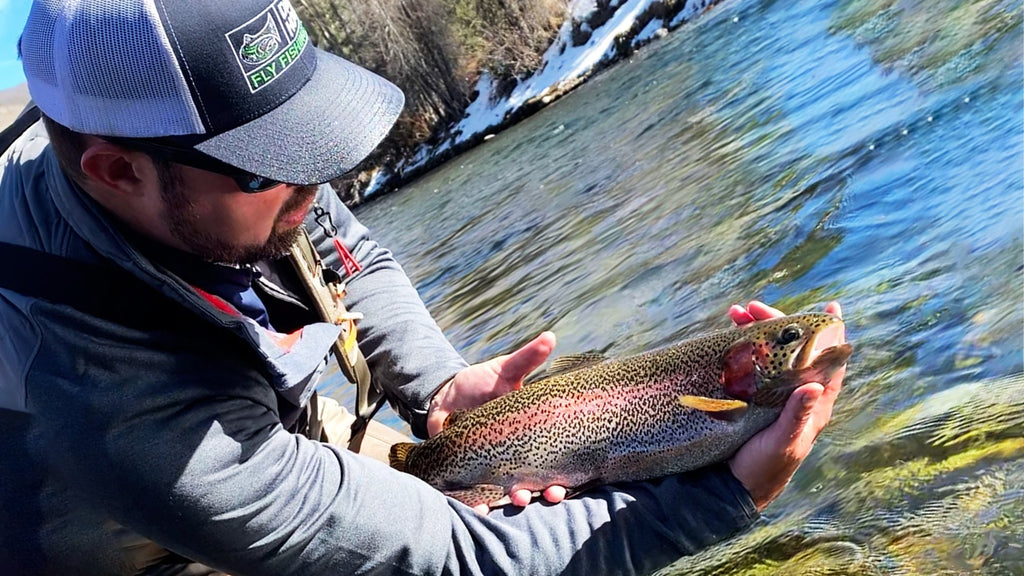
About the Author
Matthew Bernhardt, a third-generation Coloradan, grew up at the forefront of the state’s fly-fishing revolution, enjoying time on the water side by side with experienced guides and lifelong anglers.
By combining his passion for fly-fishing with input from other experienced fly-fishers and guides and his fine arts degree from Colorado State University, Matthew spent five years carefully developing the Drifthook Fly Fishing System, built to help every angler catch more trout.
When he’s not spending time with his wonderful family, you’ll find him out on the water catching MONSTER trout, and he anxiously looks forward to the day when his kids are old enough to join him there.

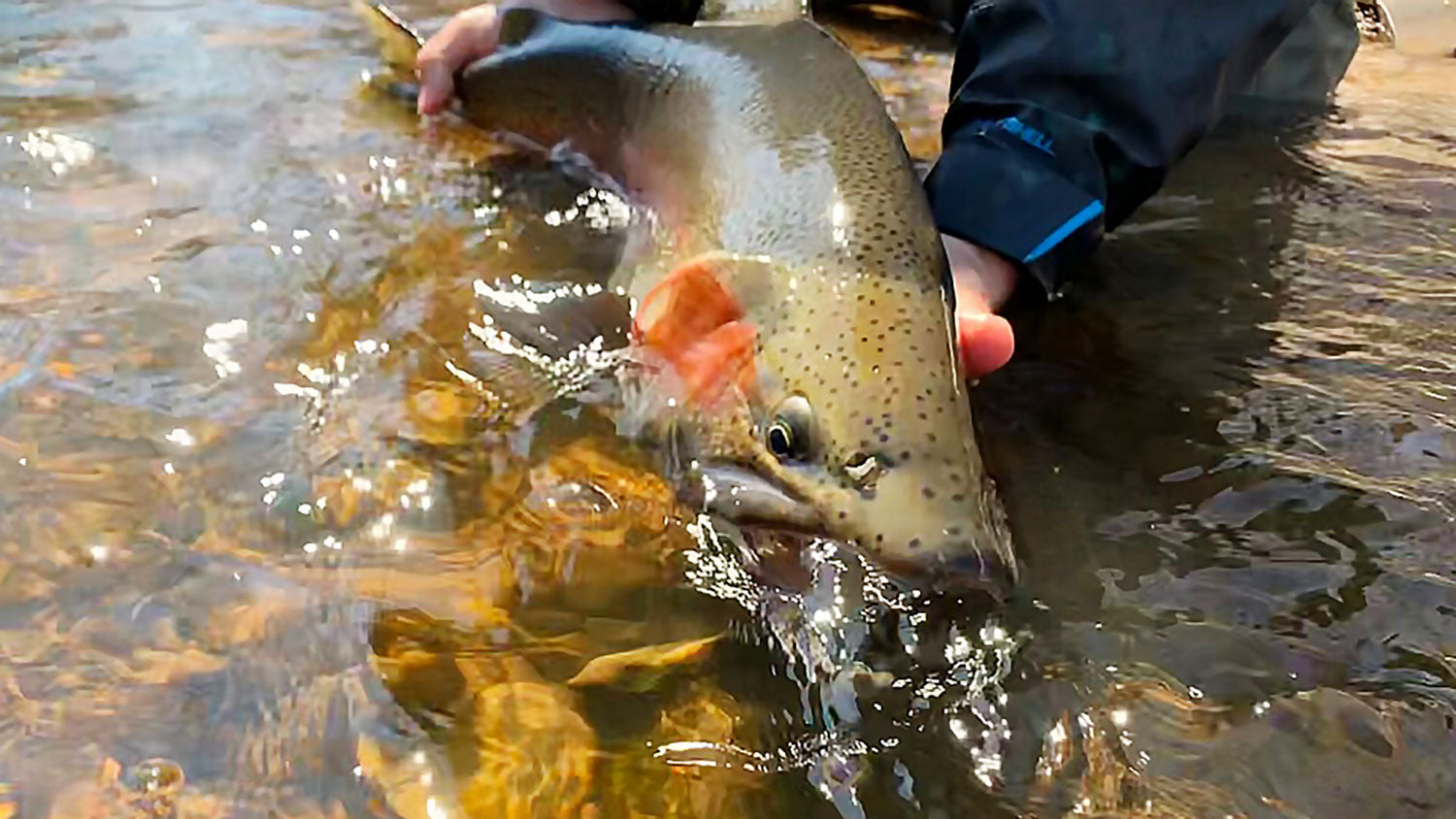

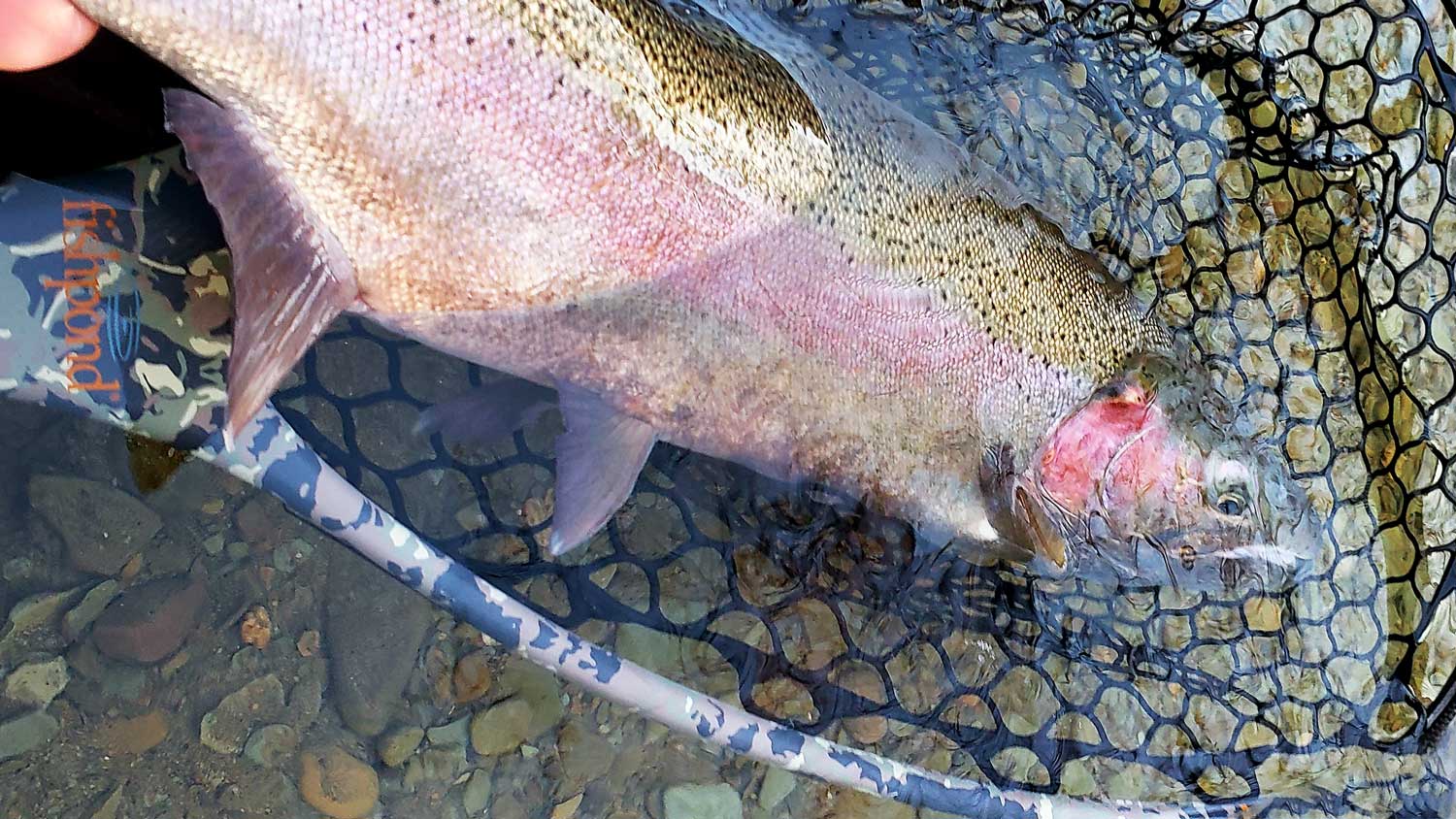
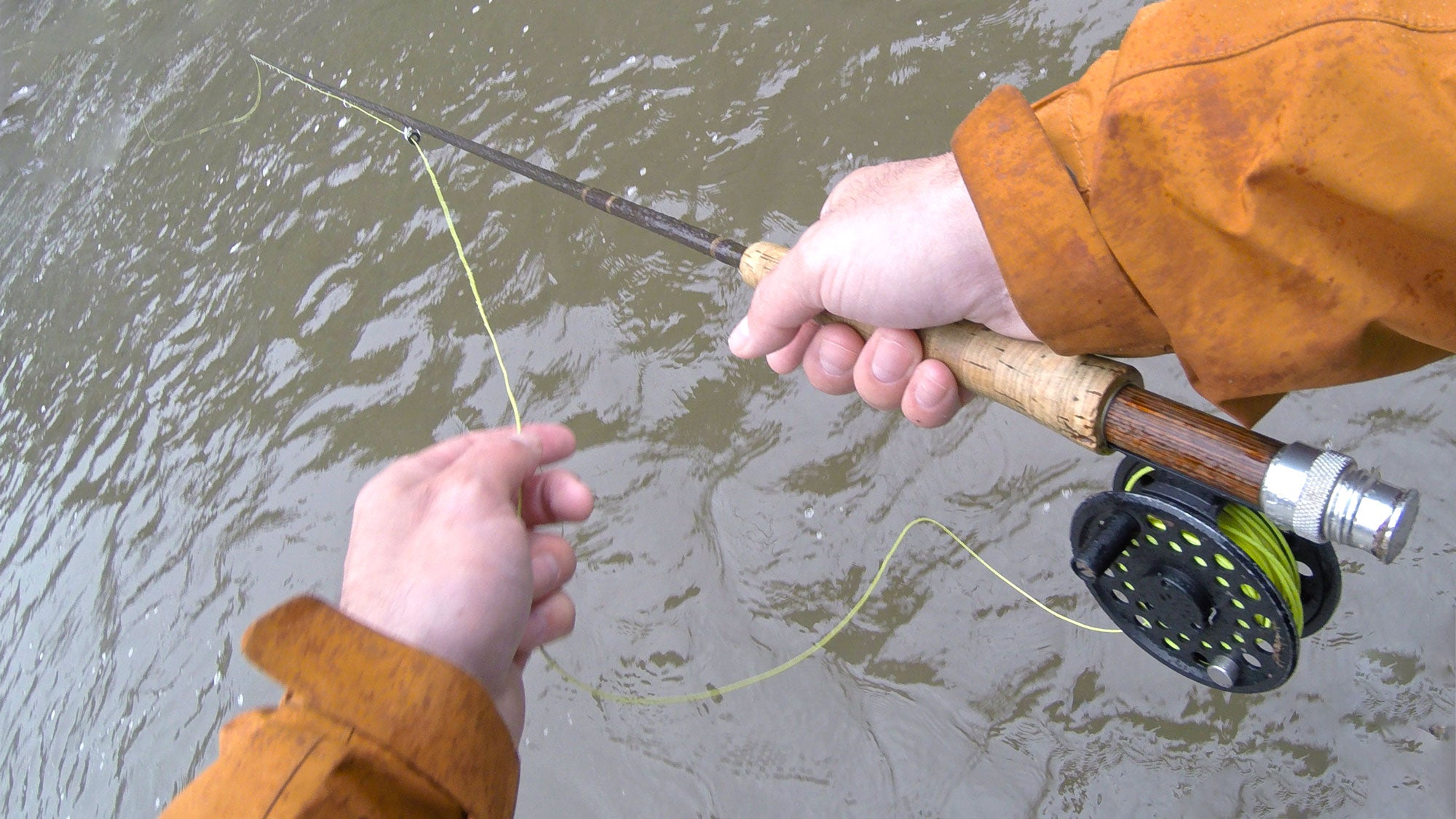
1 comment
John Chew
I have been fishing since I was in the 4th grade (spinner reel & rod). I pick up fly fishing when I was 25 years old now 60 years old. During the younger years I learned how to cast, and tie flies. Fly fishing helped me during some dark days, fly fishing helped me. Now, I continue tying flies, and help others with my gift. It did not do it myself but mentors helping through the journey to get better. I also help with Healing waters which allows me to give back to others. The fly fishing and tying is additive because when I tie that dry fly the night before then, the next day I cast it in the stream then, I watch that trout come up. That is the thrill; helping a friend catch his first trout ever on a fly tied the day before. Now, he is hooked.
I have been fishing since I was in the 4th grade (spinner reel & rod). I pick up fly fishing when I was 25 years old now 60 years old. During the younger years I learned how to cast, and tie flies. Fly fishing helped me during some dark days, fly fishing helped me. Now, I continue tying flies, and help others with my gift. It did not do it myself but mentors helping through the journey to get better. I also help with Healing waters which allows me to give back to others. The fly fishing and tying is additive because when I tie that dry fly the night before then, the next day I cast it in the stream then, I watch that trout come up. That is the thrill; helping a friend catch his first trout ever on a fly tied the day before. Now, he is hooked.